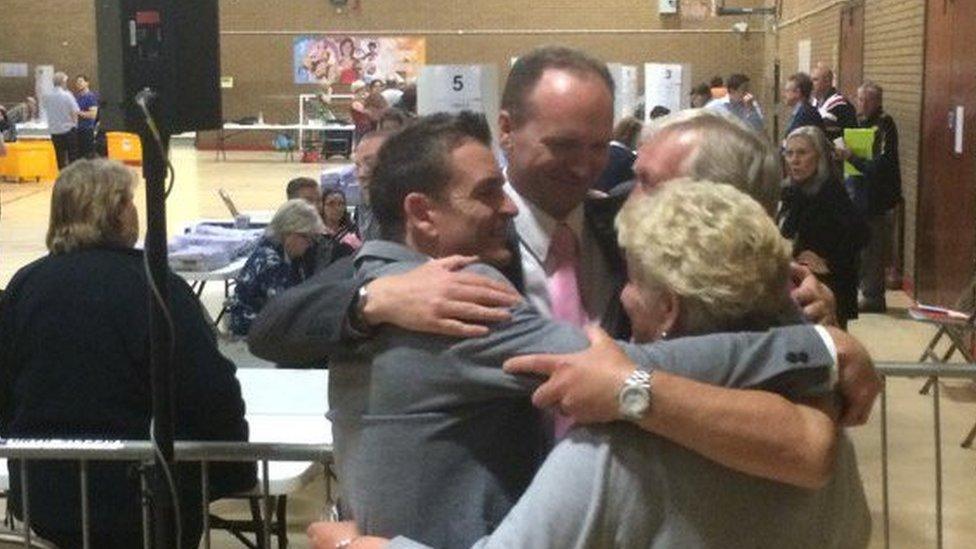Brexit 'major influence' in racism and hate crime rise
- Published
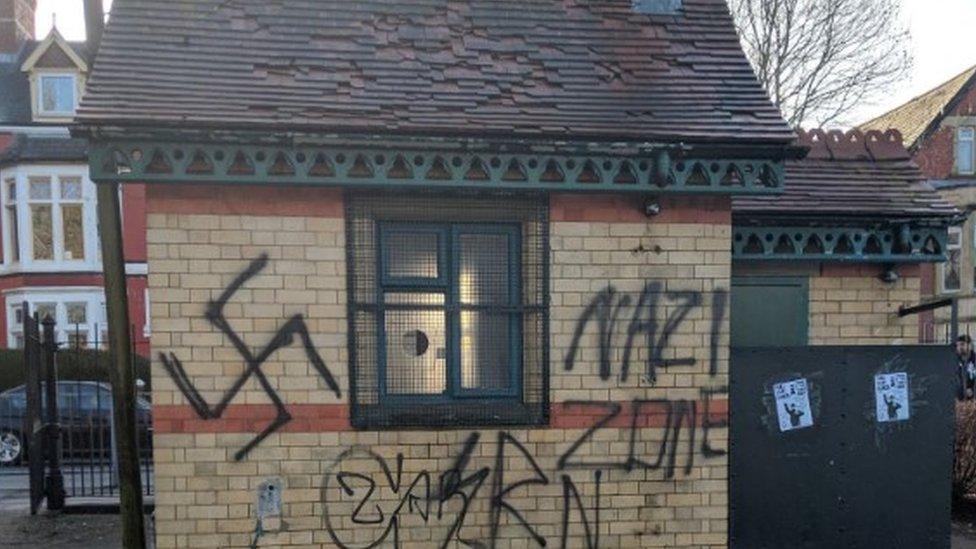
A police investigation was launched after far-right graffiti was painted on buildings in Cardiff last year
Racism and race-related hate crime has increased since the 2016 Brexit referendum, with officers appointed to deal with resultant "tensions".
Three of the four Welsh police forces reported rises in the last five years, figures released to the BBC show.
Eryl Jones, from charity Show Racism the Red Card, said he believed Brexit had been a "major influence".
It comes as 24 community cohesion officers are being appointed by councils across Wales.
These will identify and engage with people who may be vulnerable to harassment or experiencing increased fear because of Brexit, according to job adverts, external.
They will focus in particular on developing strong links with European Union citizens and other groups which might feel susceptible to Brexit tensions, as part of the Welsh Government's Community Cohesion programme.
"Incidents of racism have gone up throughout the UK as well as in Wales since the campaign to leave the EU, " Mr Jones said.
"It's fairly obvious that Brexit has been a major influence.
"The feeling is that a lot of people believe they have the right to express their racist feelings or to show hatred."

In the referendum, 854,572 (52.5%) voters in Wales chose to leave the EU, compared with 772,347 (47.5%) supporting Remain.
Home Office figures show hate crimes in England and Wales rising over the past five years - with a spike, it says, since 2016.
The latest police figures released to the BBC Radio Cymru Manylu programme following a Freedom of Information request:
North Wales Police reported 416 crimes in 2014, rising to 476 in 2016 and 858 in 2018
Gwent Police reported a rise from 374 in 2015-16 to 651 in 2018-19
South Wales Police said there were 879 incidents in 2013-14, rising to 1,102 in 2014-15, 1,232 in in 2015-16 and 1,244 in 2017-18
Dyfed-Powys Police did not provide figures
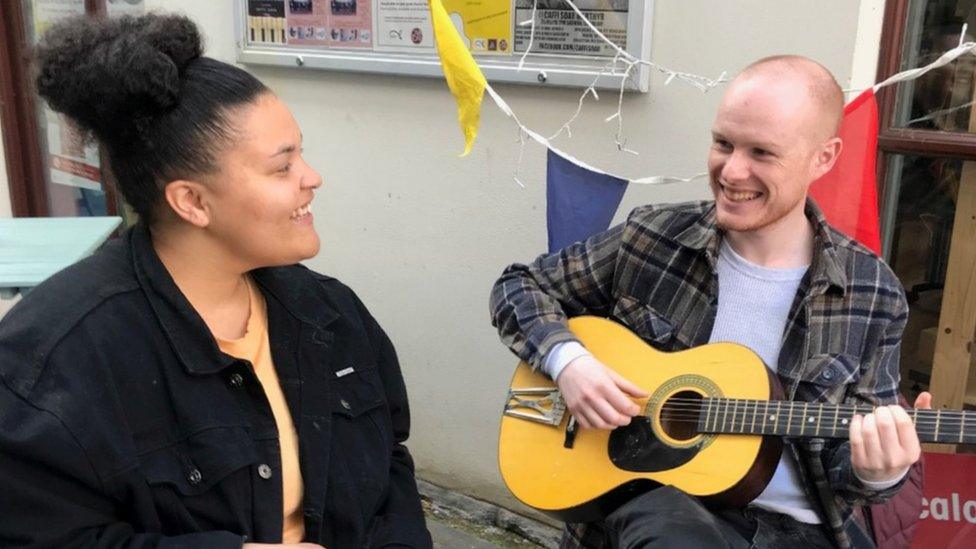
Eadyth Crawford, pictured with partner Rhodri, believes racist beliefs are now aired more freely
Eadyth Crawford is a singer and music tutor from Merthyr Tydfil who has suffered racial abuse since her own school days because of her mixed race heritage.
She said racist opinions have always existed, but believes the Brexit vote has allowed them to be aired more freely.
"Because Brexit appeals to these kinds of people, it's brought them out of the shadows," she said.
Ms Crawford also believes there is a lack of support for people who are on the receiving end of racism.
She described an incident where a five-year-old pupil said to her: "You look disgusting because you're black."
When she told fellow teachers she would not continue to work at that school, they took offence against her, and complained that she left.
"I was surprised that I didn't get any support," she added.
"I didn't even get a sorry."
Welsh Brexit campaigner Melanie Owen said she is disappointed the campaign to leave the EU has led to racists believing they have the right to air their opinions freely.
She is of mixed Welsh and Caribbean heritage and left the Conservative party last year.
"It is unfortunate that racists now feel that they have the freedom to say what they previously concealed," she said.
"And that is horrible for people who have to receive the racism, and horrible for people like me who voted to leave the EU for reasons that are nothing to do with racism, but have been confused with racists as a result."
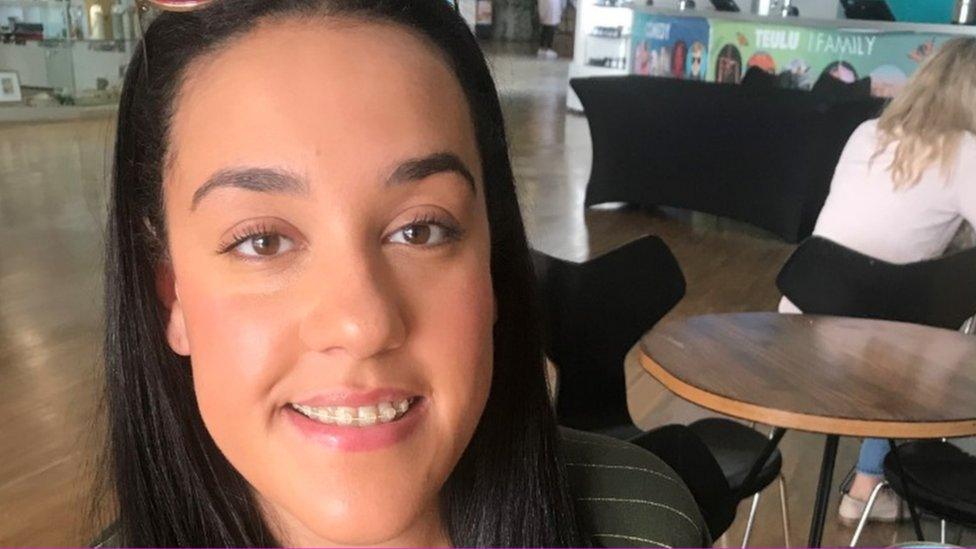
Melanie Owen thinks it is unfortunate Brexit tensions have increased racism
Ms Owen believes inflammatory comments by politicians and public figures have contributed to an atmosphere of tension.
She added: "Politicians say these things to please the most extreme factions on both sides of the argument.
"But they forget that those are a vocal minority. They should be more responsible."
Eight community cohesion officers have already been appointed, with 24 in total set to be taken on to help ease Brexit-related tensions across Wales.
The Welsh Government is spending £1.5m funding the posts.
Manylu will be broadcast on Radio Cymru at 12:30 BST on Thursday 20 June and will be repeated Sunday, 23 June at 16:00.
- Published13 March 2019
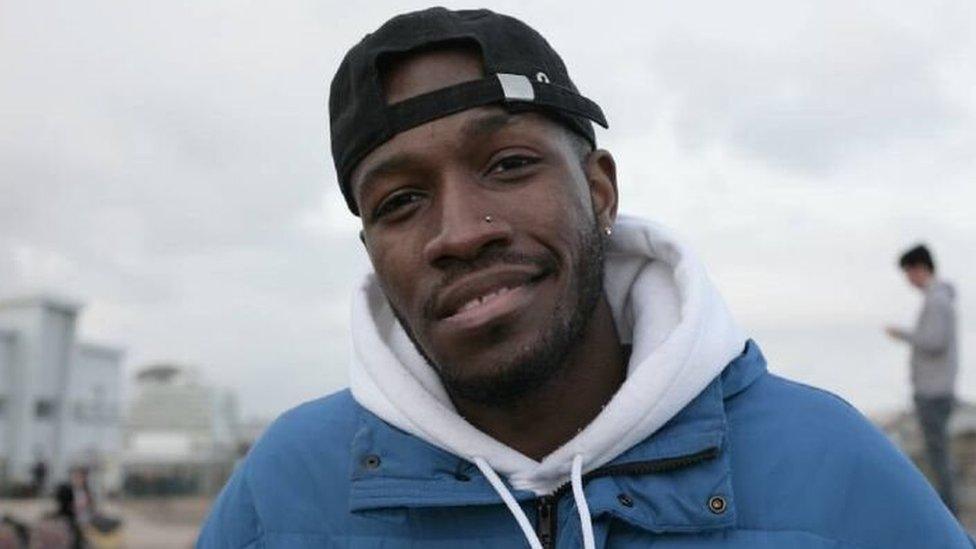
- Published9 June 2019
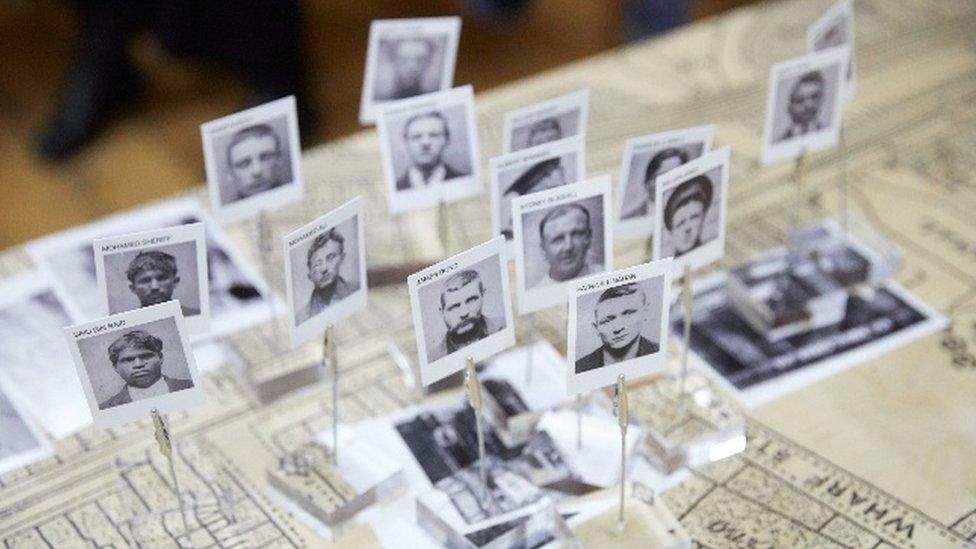
- Published24 June 2016
